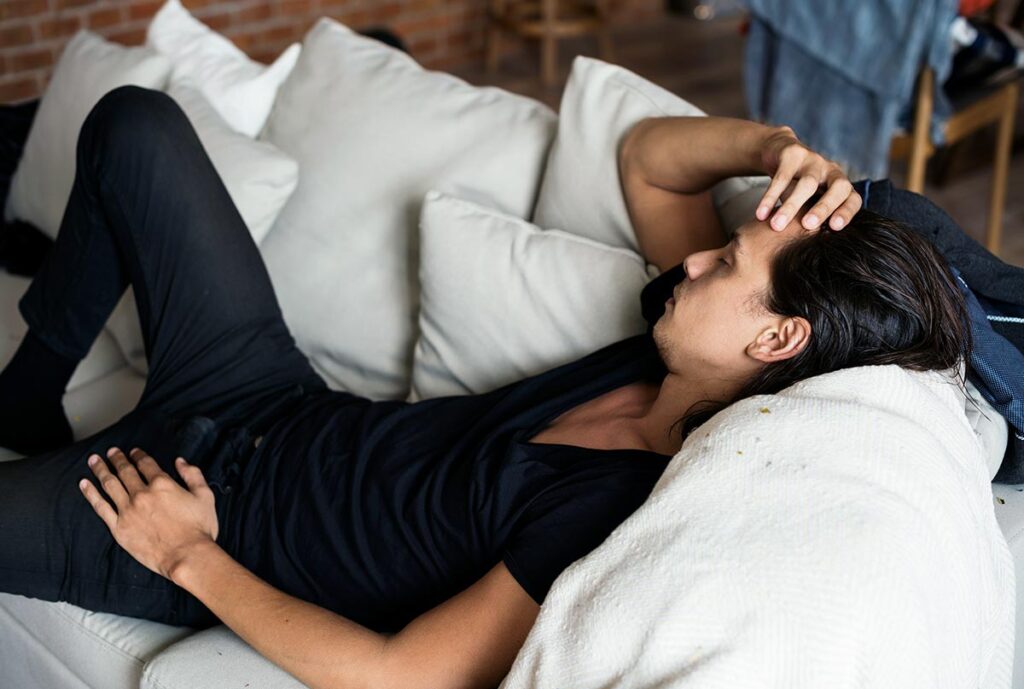
For many people, a hangover after a night of drinking is characterized by physical symptoms such as headaches, nausea, and fatigue. However, an often overlooked aspect of a hangover is the emotional and mental toll it can take. Known as “hangover anxiety” or “hangxiety,” this phenomenon refers to the heightened sense of anxiety, dread, or unease that can follow heavy alcohol consumption. While everyone experiences hangovers differently, for some, this intense anxiety can be debilitating and even cause long-lasting effects.
At 10 Acre Ranch, we understand the complexities of alcohol use and its impact on mental health. Hangover anxiety can be a sign that your relationship with alcohol is affecting your well-being in more ways than you might realize.
In this article, we explore the causes of hangover anxiety, why it happens, and practical strategies for coping with it.
What is Hangover Anxiety?
Hangover anxiety, or “hangxiety,” is the anxiety or heightened sense of unease that some people feel after drinking alcohol. While physical symptoms such as dehydration, fatigue, and nausea are well-known hangover effects, the psychological impact of a hangover can be equally challenging. People with hangxiety may feel nervous, restless, irritable, or even experience panic attacks. In severe cases, this anxiety can persist long after the physical hangover symptoms have subsided.
For individuals prone to anxiety or those with a history of mental health issues, hangxiety can be particularly severe. However, even those who don’t regularly experience anxiety may find that alcohol intensifies feelings of worry or discomfort after a night of drinking.
What Causes Hangover Anxiety?
To understand why hangover anxiety happens, it’s important to look at how alcohol affects the brain and body.
1. Alcohol’s Impact on Brain Chemistry
Alcohol is a central nervous system depressant, which means it slows down brain activity, causing a feeling of relaxation and reduced inhibitions. This is part of why alcohol can make people feel more sociable and less anxious while drinking. However, alcohol’s effects on the brain are short-lived.
As the body metabolizes alcohol, it triggers a rebound effect. The brain starts producing more excitatory neurotransmitters, such as glutamate, to counteract the sedative effects of alcohol. This rebound can lead to overstimulation, making you feel jittery, anxious, or on edge once the alcohol begins to wear off.
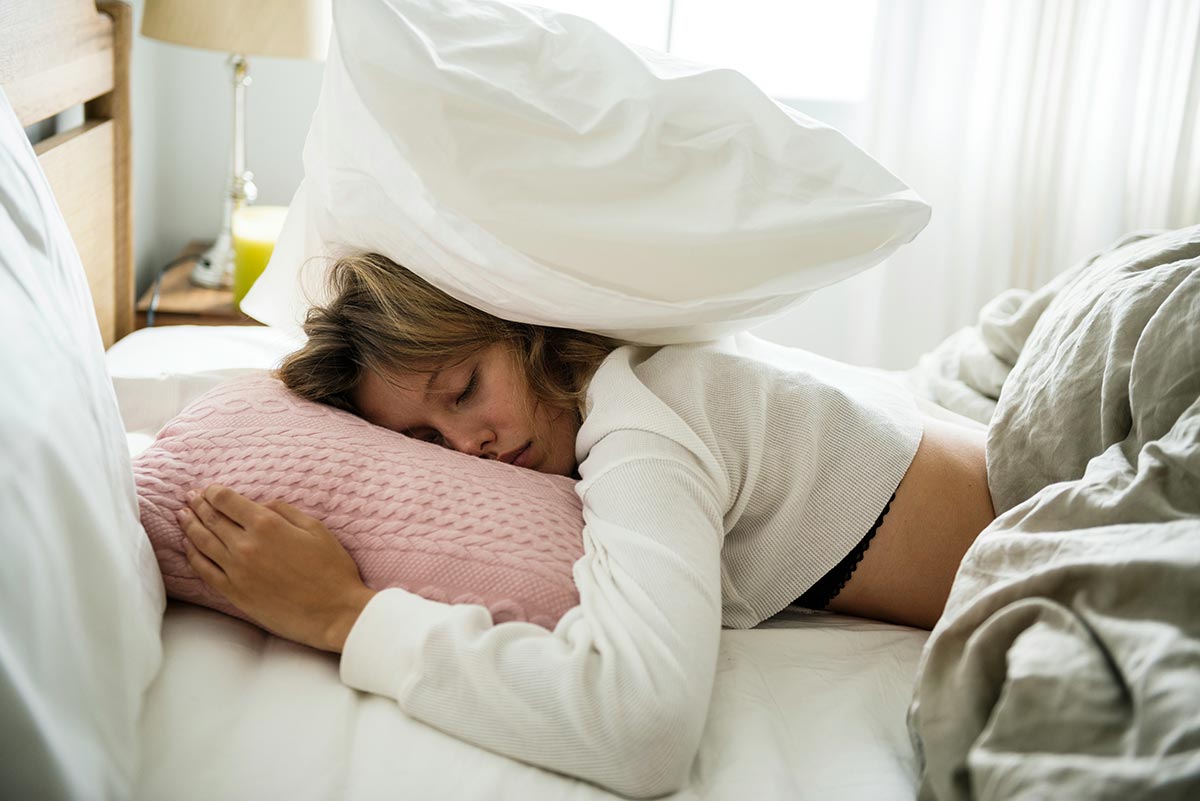
2. Dehydration and Nutrient Depletion
Alcohol is a diuretic, meaning it causes the body to lose fluids more quickly than normal. Dehydration can lead to a range of physical symptoms, including headaches, dizziness, and fatigue. However, dehydration can also exacerbate feelings of anxiety. Additionally, alcohol depletes essential vitamins and minerals like magnesium and B vitamins, which are crucial for maintaining a stable mood.
3. Sleep Disruption
Alcohol may make you feel sleepy at first, but it significantly disrupts the quality of your sleep. Drinking, especially in excess, can interfere with the REM cycle, the stage of sleep crucial for cognitive function and emotional regulation. Poor sleep quality can leave you feeling groggy, disoriented, and emotionally vulnerable the next day, increasing the likelihood of experiencing anxiety.
4. Guilt and Regret
Many people engage in behaviors while drinking that they wouldn’t normally do when sober—whether it’s oversharing, saying something hurtful, or engaging in risky activities. The morning after drinking, these memories can fuel feelings of guilt, embarrassment, or regret, further intensifying anxiety. Known as “beer fear” or “hangxiety,” this emotional hangover can feel worse than the physical symptoms.
Get Your Questions Answered
Our expert & caring staff on site are available 24/7. Call us today.
Who is Most Likely to Experience Hangover Anxiety?
Anyone who drinks alcohol can experience hangover anxiety, but some people are more prone to it than others. Factors that may increase the likelihood of hangxiety include:
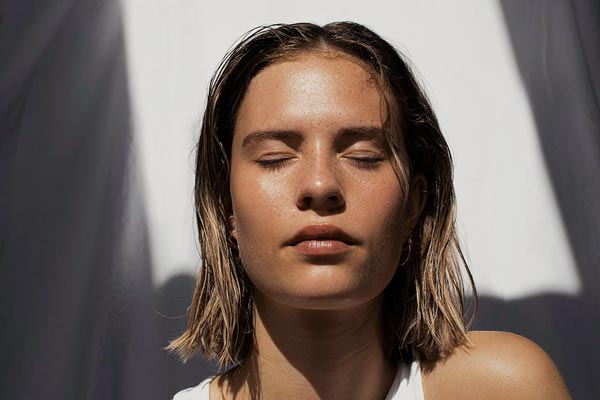
- Pre-existing Anxiety Disorders: Individuals with anxiety disorders, such as generalized anxiety disorder (GAD) or panic disorder, are more likely to experience heightened anxiety after drinking alcohol.
- Introverts or Highly Sensitive Individuals: People who are naturally more introverted or sensitive may feel more mentally and emotionally drained after social drinking.
- Binge Drinkers: Those who consume large quantities of alcohol in a short period of time (binge drinking) are more likely to experience severe hangover symptoms, including anxiety.
- Individuals with a Family History of Alcoholism: Genetics can play a role in how the body processes alcohol, and some individuals may be more susceptible to both the physical and psychological aftereffects of drinking.
The Cycle of Alcohol and Anxiety
It’s important to recognize that hangover anxiety can create a vicious cycle for those who drink to cope with anxiety. While alcohol may provide temporary relief from anxious feelings, it ultimately worsens anxiety once its effects wear off. The next day, the individual may feel anxious, regretful, or ashamed, which can lead to drinking again in an attempt to self-medicate. This cycle can be hard to break and, over time, may lead to a dependence on alcohol to manage emotional states.
How to Cope with Hangover Anxiety
If you’ve experienced hangxiety, you know how uncomfortable and distressing it can be. The good news is that there are strategies to help you manage and reduce the anxiety that follows drinking. Here are some practical steps you can take:
1. Hydrate and Replenish Nutrients
One of the simplest and most effective ways to combat hangover anxiety is to rehydrate. Since dehydration can worsen anxiety symptoms, drinking plenty of water the morning after drinking can help ease feelings of nervousness. Additionally, consider rehydrating with drinks that contain electrolytes to help replenish lost nutrients.
Eating a healthy, balanced meal rich in vitamins and minerals can also support your body’s recovery. Foods high in B vitamins, magnesium, and potassium can help stabilize your mood and improve your physical well-being.
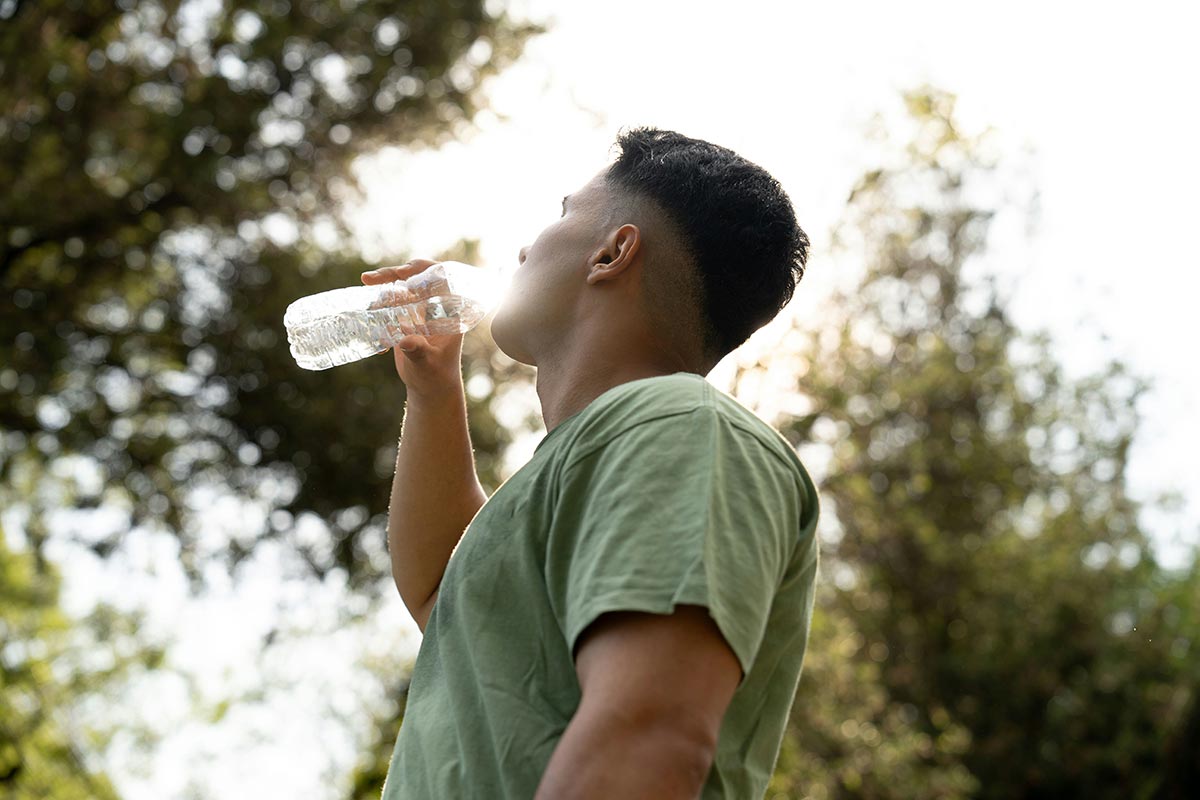
2. Practice Mindful Breathing
When you’re feeling anxious, one of the quickest ways to calm yourself is through mindful breathing. Deep, slow breaths can help lower your heart rate and bring your body out of “fight-or-flight” mode.
Try this simple breathing exercise:
- Breathe in slowly through your nose for a count of four.
- Hold your breath for a count of four.
- Exhale slowly through your mouth for a count of four.
- Repeat this cycle for a few minutes, focusing on each breath.
This technique can help you regain a sense of control and reduce the intensity of your anxious feelings.
3. Engage in Light Physical Activity
While it may be tempting to stay in bed all day after a night of drinking, light physical activity can actually help alleviate hangxiety. Exercise increases the production of endorphins, which are natural mood-boosting chemicals in the brain. Even a short walk outside in the fresh air can help improve your mood, reduce anxiety, and clear your head.
4. Limit Alcohol Consumption
If hangover anxiety is a recurring issue for you, it may be time to evaluate your drinking habits. Cutting back on alcohol or choosing to abstain entirely can significantly reduce both the physical and psychological aftereffects of drinking.
- Set Limits: If you choose to continue drinking, set clear limits for yourself. Avoid binge drinking and try to pace yourself throughout the evening.
- Alternate with Water: Drinking water between alcoholic beverages can help slow your alcohol intake and keep you hydrated.
5. Practice Self-Compassion
One of the most difficult aspects of hangxiety is the sense of guilt or shame that can arise after a night of drinking. It’s easy to ruminate on past actions, especially if you feel you behaved in ways you regret. However, it’s important to practice self-compassion.
- Acknowledge Your Feelings: Recognize that what you’re experiencing is temporary and that you are not alone in feeling this way. Many people experience hangover anxiety, and it does not define you.
- Forgive Yourself: If you did something you regret, reflect on it, learn from it, and move forward. Holding onto guilt will only intensify your anxiety.
6. Seek Support
If hangxiety is becoming a frequent issue, or if you find yourself using alcohol to cope with anxiety or other emotions, it may be time to seek support. At 10 Acre Ranch, we offer comprehensive treatment programs designed to address both alcohol use and co-occurring mental health conditions, including anxiety.
Speaking with a therapist or counselor can help you understand the underlying reasons for your drinking and develop healthier coping strategies for managing stress and anxiety. Group therapy or support groups, such as Alcoholics Anonymous (AA), can also provide a sense of community and encouragement as you navigate your relationship with alcohol.
Long-Term Solutions for Hangover Anxiety
For some, hangover anxiety is a rare occurrence, only surfacing after particularly heavy drinking sessions. However, for others, it can be a sign of a more complex relationship with alcohol and mental health.
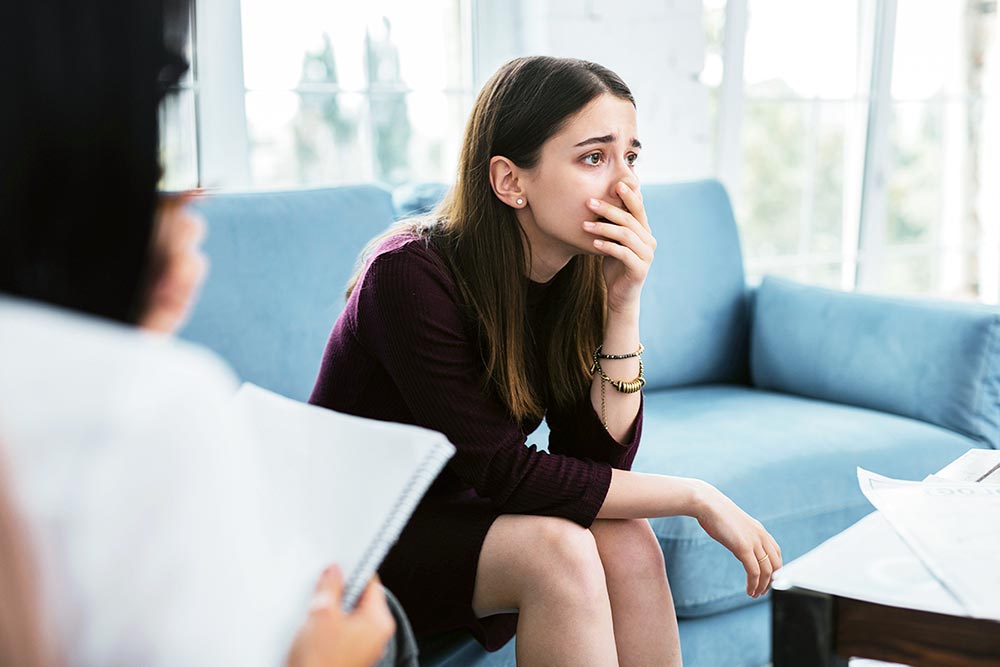
If you find that hangxiety is a regular part of your life, it may be time to consider a longer-term solution.
- Cutting Back or Quitting Alcohol: For those who experience frequent hangxiety, reducing alcohol consumption or quitting entirely may be the best course of action for mental well-being. Sobriety can significantly improve your mood, reduce anxiety, and help you regain control over your emotions.
- Treating Underlying Anxiety Disorders: If anxiety is a persistent issue, it’s important to address the root cause. Working with a mental health professional can help you manage your anxiety in healthier ways, without relying on alcohol.
Conclusion
Hangover anxiety, or “hangxiety,” is a common but distressing side effect of drinking alcohol. While it can feel overwhelming, there are ways to cope with and reduce its impact. Here are some strategies to help manage hangover anxiety:
- Stay Hydrated: Drink plenty of water before, during, and after alcohol consumption. Proper hydration can alleviate some physical symptoms and improve overall well-being.
- Eat Well: Consuming a balanced meal before drinking can help slow alcohol absorption. After drinking, nourishing your body with healthy foods can support recovery.
- Practice Mindfulness: Techniques like deep breathing, meditation, or yoga can help calm your mind and reduce anxiety levels.
- Limit Alcohol Intake: Moderation is key. Setting limits on your drinking can help prevent severe hangover symptoms and associated anxiety.
- Get Plenty of Rest: Sleep is crucial for recovery. Allow your body to rest and recharge after a night of drinking.
- Avoid Stimulants: Caffeine and other stimulants may exacerbate anxiety symptoms. Opt for herbal teas or calming beverages instead.
- Reach Out for Support: Talking to friends or loved ones can help you process feelings of anxiety. Sharing your experiences often brings relief.
- Consider Professional Help: If hangover anxiety becomes a frequent issue, speaking with a therapist can provide strategies tailored to your needs.
By implementing these strategies, you can reduce the intensity of hangover anxiety and promote a healthier relationship with alcohol. Remember, it’s essential to prioritize your mental and physical well-being.
If you’re struggling with hangover anxiety, know that you’re not alone. Consider reaching out to a friend, a support group, or a mental health professional. Small steps can lead to significant changes. Prioritize your health and happiness—your journey toward a brighter, more balanced life starts now. Don’t hesitate to seek help and reclaim your peace of mind!






